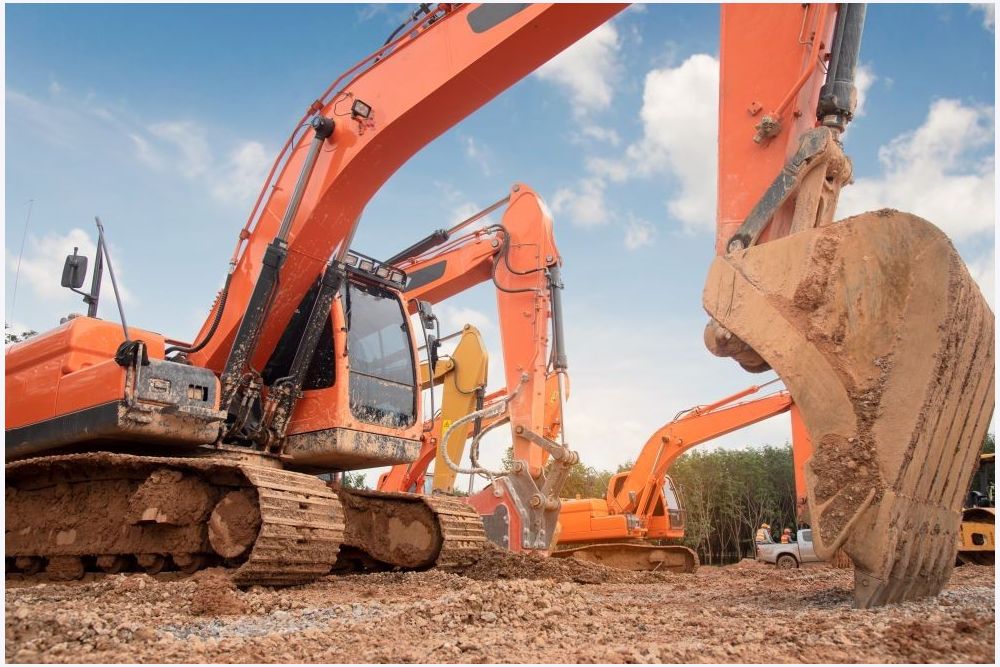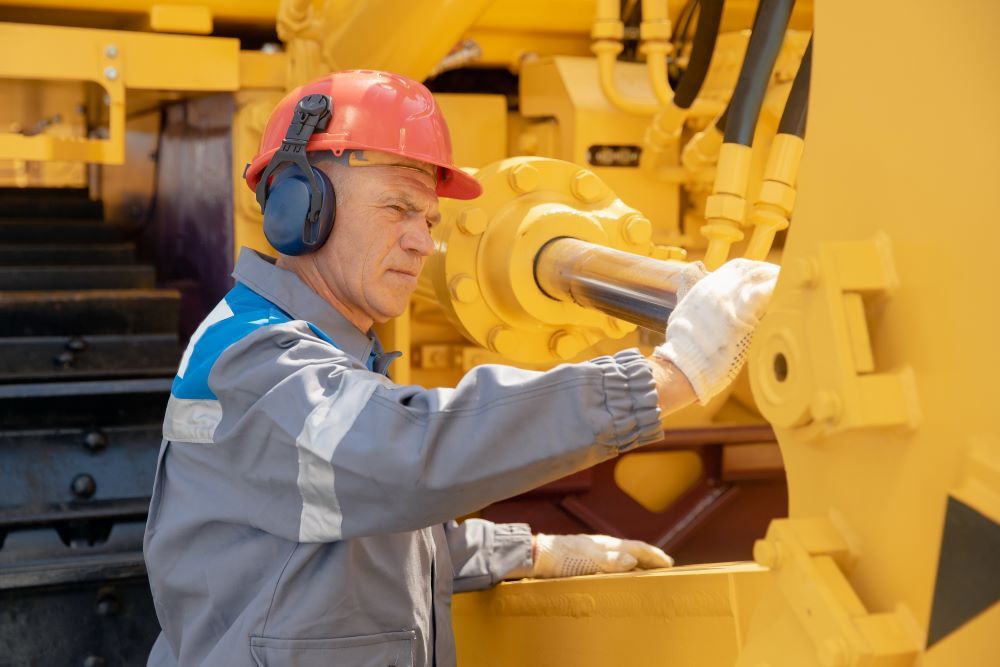
Earthmoving Equipment Maintenance 101: How to Maximize Your Machinery's Lifespan
Prevent Dirt Build-up
Construction equipment is prone to getting dirty after every job. Dirt, mud, and debris can cause significant damage to the equipment if left uncleaned. Soot and dust can clog filters and vents, leading to decreased performance, while sand and rocks increase wear and tear on the undercarriage. Thus, cleaning your equipment after every job is essential.
One of the most significant threats to earthmoving equipment is corrosion. Corrosion is not only caused by exposure to rain but also by exposure to road salt, fertilizer, and deicers. It is vital to wash off these substances immediately after use to prevent corrosion from setting in.
Properly maintained, clean equipment makes a better first impression and improves your company’s image. If you want to be regarded as an organized, detail-oriented, and trustworthy service provider, you should keep your equipment spotless.
You can invest in your cleaning equipment that consists of a dustless vacuum, a stiff brush, and a pressure washer, or a wheel wash system that can take care of your equipment in a matter of minutes. Clean equipment lasts longer and performs better, so ensure that your equipment is well-kept to protect your assets and keep them in top working condition.
Perform Regular Parts Lubrication
Proper lubrication is imperative for earthmoving equipment to work smoothly and last longer. Lubricants are designed to move joints on a layer of grease, which protects equipment from excessive friction. Heavy machinery operates under challenging conditions, from extreme weather and temperatures to muddy job sites. Therefore, it is necessary to protect them from excessive friction to keep them working smoothly.
Maintenance experts recommend that you grease your equipment daily. Jeff Payne at CAT advises that you clean zerks with a rag and remove any dirt before you pump in new grease. Then you put the grease gun on the zerk and give from four to five pumps or as soon as you see the grease get out.
The most common mistake operators make is to over-grease the equipment. More grease will only allow more dust to collect on joints, so you’ll have to clean it more frequently. Other things you can do to ensure your machines are lubricated enough are to check lubricant levels frequently, use prescribed lubricants by the equipment manufacturer, and look for oil leaks and grease build-up.
Choosing the right lubricants is just as vital as regularly greasing your equipment. Different types and brands of grease are available on the market, and it is essential to choose the right one for your equipment. Some things to keep in mind when looking for the right grease are:
- Different Seasons: In the summer, it’s recommended to use thicker grease as it tends to thin out under high temperatures. In colder weather, grease with lower viscosity performs better.
- Extreme Pressure: Equipment that works under heavy stress will benefit from grease with molybdenum disulphide, commonly known as ‘’moly’’. This additive can get into the smallest machine pins and bushings.
- Different Parts: Some components of your machines get heated while others stay cool. For parts that operate at high temperatures, use more viscous grease. For others, use synthetic grease.
- Wet Conditions: If your equipment frequently works in wet conditions, try using marine grease. These lubricants have lithium complex thickeners that protect from salt and fresh water and help prevent rust.
The bottom line is that greasing should be done only as necessary, and the proper type and amount of grease should be used. That way you prevent potential damage and ensure optimal performance.

Perform Regular Inspections and Maintenance
Another key tip is to perform routine inspections and maintenance on your earthmoving equipment.
Maintenance is not only essential for keeping your equipment in top working condition but also for detecting potential issues before they become severe problems that can cause expensive downtime.
Here are some of the upkeeping tasks you should conduct regularly:
- Inspect and Replace Worn Out Parts: Systematic inspection of the machinery allows you to detect and replace worn-out parts. For instance, if you notice that the track on your excavator is wearing out, you should replace it as soon as possible to prevent more severe damage.
- Check and Replace Filters: Filters are fundamental to the proper functioning of your equipment, and they need to be changed frequently. Make sure you keep track of when filters were last changed and replace them at the recommended intervals.
- Check Fluid Levels: Check all fluids, such as engine oil, coolant, and hydraulic fluid levels, routinely. If any fluid levels are low, refill them immediately. Low fluid levels can cause damage to your equipment's engine and other parts.
- Inspect Electrical Systems: Consistently check the electrical systems on your machinery to ensure that they're functioning correctly. Check the batteries, connections, and wiring to make sure everything is in good working order.
- Keep Records: Keep accurate records of all inspections and maintenance tasks you perform. This way, you can keep track of when parts were last replaced, when filters were last changed, and other key information.
By performing regular inspections and servicing tasks, you can prolong the lifespan of your earthmoving equipment and save yourself money in the long run.
Provide Proper Training for Equipment and Machinery Operators
Training operators to prevent user-made errors and not overworking the machinery is crucial in maintaining the longevity and efficiency of the machinery.
It is critical to provide comprehensive training to operators on how to properly operate and maintain the machinery. This should include instructions on how to properly start and stop the machinery, how to perform routine maintenance tasks such as cleaning and lubrication, and how to troubleshoot common issues.
Additionally, operators should be trained on the importance of following established procedures and protocols when operating the machinery. This includes adhering to recommended load capacities, operating speeds, and other operational parameters to prevent overworking the machinery and causing unnecessary wear and tear.
It is also important to encourage operators to report any issues or malfunctions immediately, so that they can be addressed promptly and prevent more serious problems from developing. This can be achieved through regular communication between operators and maintenance personnel, as well as through ongoing training and reinforcement of the importance of reporting issues.
To Summarise
Maximizing the lifespan of your equipment is fundamental for any earthmoving business. Regular cleaning, proper lubrication, routine inspections, and proper operator training can go a long way in achieving this goal. By taking the time to care for your equipment, you can extend its lifespan, improve its performance, and save money in the long run. Remember that proper care is key to preventing expensive downtime, and keeping accurate records of all maintenance tasks is crucial for future reference.
By implementing the tips and techniques outlined in this article, you can protect your assets and keep your equipment in top working condition for many years to come.
Found your perfect purchase? Let’s make financing just as easy!
Work with Australia’s best-reviewed finance broker for a great deal and a stress-free experience. With 2,500+ glowing Google reviews, you can trust you're in good hands! See what our happy customers say in Credit One reviews, or jump right in and crunch the numbers with our handy loan repayment calculator. Your ideal financing solution is just a few clicks away!